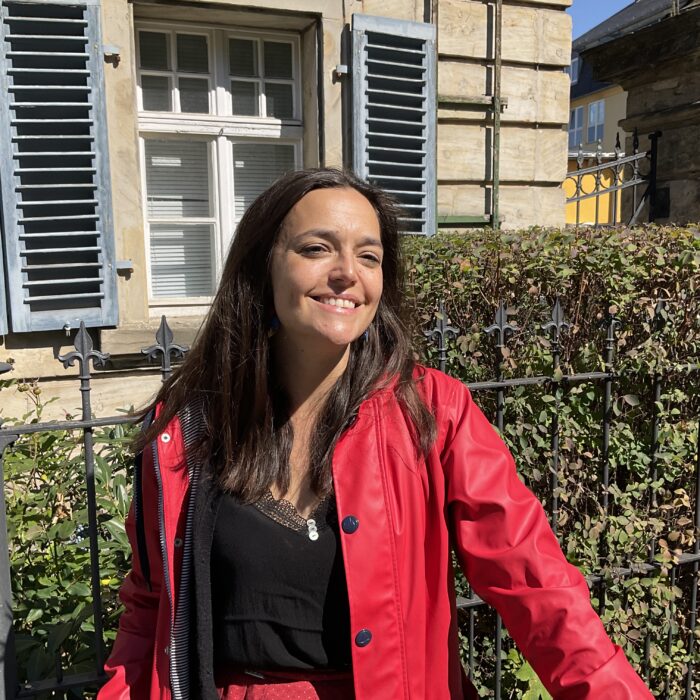
Life & Art Imitate One Another – How Ana María Martinez Uses Real Life to Immerse Herself In Her Characters
By David SalazarDuring a conversation with OperaWire regarding her upcoming performances of “Madama Butterfly” at the Royal Opera House, soprano Ana María Martinez related a story regarding her deep connection with the work.
She narrated how during her first production of the opera at the Houston Grand Opera in 2010, her son was around the same age as the title character’s child and that she was going through a separation with her ex-husband, tenor Chad Shelton. It was undeniably a tough time for her and taking on a role this painful was bound to leaves its scars. But…
“It was very therapeutic,” the Puerto-Rican born soprano revealed. “That was a beautiful example of art imitating life in that moment.”
You might very well make that statement about the Grammy Award Winner every time she takes on a role, her connection to every single character she takes on rooted to very personal experiences or people in her own life.
Her mother Evangelina Colon was a soprano and she had tremendous support in entering into the often challenging world of opera. She studied at Julliard under Rose Bampton and has conquered all the major opera houses in such cities as New York, Chicago, Munich, Vienna, Salzburg, Paris, and Santa Fe among others.
Being a Mother
“Butterfly” is one of the soprano’s signature roles at this moment as it seems that everywhere she sings the opera, she garners one triumph after another. The New York Times clamored over her performance, calling it “modest and delicate, yet rising to glimpses of the epic in her final aria of self-sacrifice” and the Houston Press raved about her “feisty stubbornness.”
But getting to that level of command actually took a lot of time for the soprano. Her personal challenges brought her great difficulties and Cio-Cio San’s heartbreak only served as a reminder.
“I was crying so much at some parts and I was afraid and embarrassed at the thought of breaking down in rehearsals,” she revealed. When she took on the role during that initial run, she turned to director Michael Grandage for helping in controlling her emotions.
“He looked at me and smiled at me and said, ‘No. there isn’t a shortcut to this. You have to go through that. You’ll get to a spot where you won’t cry anymore. But until you do that, you have to do it,’” she continued.
The director was alert to the sensitivity of his cast member and closed down the set, barring people from entering unless they were essential to a scene.
“I thank him because there were moments where I would start crying. I needed to go through it so I am not consumed by Ana’s emotions but instead Cio-Cio San’s,” Martinez noted. “It allowed me to access the character and understand that my tears were Ana’s. I was feeling sorry for the character. So once I tapped into that, I could really be the character.”
And once she did, the role fit her so perfectly that her director could not help but notice.
“He told me that he could appreciate the demands of the role, both vocal and dramatic, and how it could be conceivable that the leading character could tire greatly by the time the second act arrived, but with me, he said that it was as if I got a second wind,” she explained. “And I do get a second wind because in my story, the greatest dream to come true in my life is to become a mother. I have gotten my second wind and greatest joy by becoming a mother.”
Her son happens to be born on her birthday.
Spurned Love
Speaking of singing operas for the first time, Martinez is coming off her first ever run of “Eugene Onegin.” The soprano noted that the work was particularly challenging because she is not fluent in Russian and had to spend five weeks working on the language with a coach.
“If I speak the language, like a Verdi opera or Puccini, I take 2 weeks max to learn the text,” she explained. “This takes months.”
But once she overcame that hurdle she found a character that she connects with on a profound level.
In fact, Martinez came out and revealed that Tatiana’s situation with Eugene closely mirrored one of her own. Tatiana pours out her feelings for the misanthropic protagonist only to be spurned. Years later, after she has married into high society he comes to her asking for another chance.
“I had something like that in my life. It was about the same timing as in this story,” she explained.
Tatiana ultimately remains loyal to her husband and rebuffs Onegin in a final confrontation. Martinez didn’t even bother with the meeting.
“The person didn’t come to me but called me asking to see me,” she explained. But she refused the meeting and never regretted the decision.
“I saw that person again and I was happy and I am still very happy that I stood strong,” she added. “I access all that when I do that final scene. She has that final B natural at the end where she says ‘Goodbye forever.’ I did the same thing, in my own way of course.
“Tatiana’s a very beautiful character. When I talk to women, they are moved by her honesty, loyalty and her courage. She’s every woman’s woman.”
Liberation…
While Martinez has brought a lot of her own personal experience to her roles, there have been characters that have reciprocated the favor, allowing her new insights into living and also helping understand how and why she wants to live her life.
The first of these, which she states, “liberated her,” is none other than that all-powerful gypsy Carmen. Martinez will be taking on the mezzo role next season, a true rarity for any soprano and a role she first took on in 2014.
Martinez revealed that taking on the role was not even her idea. It belonged to Anthony Freud when he was heading the Houston Grand Opera.
When she found out it was Brandon Jovanovich, she decided it was worth the shot. She had worked with Jovanovich on “Rusalka” and knew he was a “consummate actor. He’s so present and takes beautiful risks. I trust him implicitly.”
But then she hit another rut in the experience.
“I was so intimidated by the character of Carmen. I was having a really big crisis,” Martinez admitted. “You either want to be her or you want to be with her sexually, romantically. You want to dominate her. She enters a room of over 100 people and everything stops. All eyes are on her. She doesn’t try to be anything. She’s just that magnetic and charismatic. And very much a creature of the earth.
“That’s intimidating. Every major star that can do this role, has done it and left her mark. I thought, ‘How dare I try this?’”
Martinez added that the intimidation also caused another emotional response from her, she held the character in judgment.
“When you do that, you can’t truly love them and you can’t embody them. The audience will not get the full effect.”
So she spoke to a friend about her challenge and got sage insight.
“She reminded me that Carmen is a fierce person. And she felt that I could access that fierce quality within me,” she noted.
And then art was inspired yet again by real life.
Martinez recalled reading a story about a woman who had found a child trapped under a car. Despite the insurmountable odds, the woman mustered enough strength to lift that car just enough so the child could get out.
“I thought that was as fierce as it gets. ‘Would Carmen do that?” Yes, she would. Would I? Yes, I would,” Martinez enthused. “And from there I found the common ground from which to embody the character and fully love her. And from that day forward I have been able to step right into her shoes. Playing that character has been one of the most liberating experiences I have ever had in my whole life.”
…And Awakening
If Carmen liberated her emotionally and allowed her to find new inner strength, it was another character that allowed her to find “existential awakening” – Rusalka.
Martinez sang the title character in that opera in 2014 and reprised it in Houston in 2016. But it was that first run that was truly transformative for the soprano, even with all the difficulty of having to learn Czech.
“I felt I had been asleep until then,” Martinez emphasized. “Rusalka’s desire to have a human experience and be alive and even risk everything for the idea of love, that is something I identify with. Her courage is, I would dare say, is greater than mine. Her belief in her destiny is so unwavering and complete that she is willing to go that far and lose her voice.
“Portraying her made me a more courageous woman. She raised me up to reach her level. I actually made very pivotal life decisions when I got into the essence of Rusalka and had a clearer idea of where my soul was on this journey.”
And while Rusalka has allowed her to have a stronger understanding of herself, the character’s sad ending as a spirit condemned to live forever also hits her hard.
“When I finish it, I am always in tears. It takes everything out of me,” she revealed.
And yet it gives her, and her audience, so much more.


